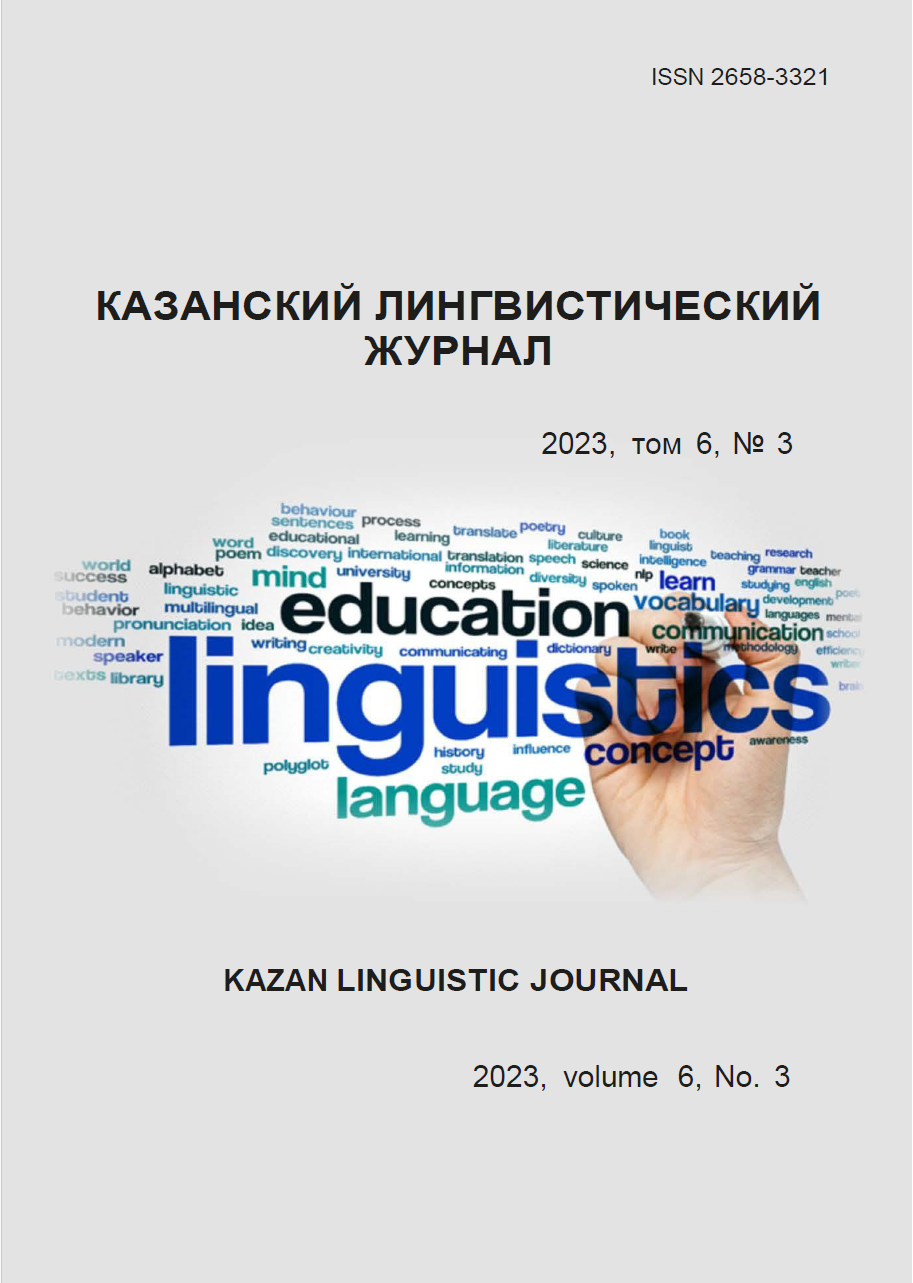Perspective-taking in argumentative discourse
https://doi.org/10.26907/2658-3321.2023.6.3.431–441
Keywords:
linguistics, perspective-taking, argumentation, pragma-dialectics, fallacy, appeal to emotionAbstract
It is widely known how important perspective-taking (PT) ability is in social interaction. The argumentation process, being a kind of social interaction, also requires the use of PT from disputants. The goal of this study is to demonstrate the functions of the human cognitive ability to take the perspective of others in argumentative discourse. The study is based on an interview conducted by Richard Dawkins with Wendy Wright. Both interlocutors present diametrically opposed views on the theory of evolution and intelligent design. To analyse the interview in the framework of argumentation theory, Pragma-dialectics served as a method for establishing and distinguishing fallacies and their interpretation. Mental reconstruction of the appeal to emotion fallacy assisted to identify the function of PT in using the fallacious argument. As a result, it has been illustrated that the PT capability has at least two functions in the argumentation process: the General (Conceptual) function — basic mechanisms to maintain communication; and the Differential (Operational) function — in providing arguments in general and in utilising fallacious arguments, i.e., appeal to emotion fallacy.
References
References
Richard Dawkins Interviews Creationist Wendy Wright, 23.03.2013. URL: https://www.youtube.com/watch?v=-AS6rQtiEh8 [Дата обращения: 17.06.2020]
Hollarek M., Lee NC. Current Understanding of Developmental Changes in Adolescent Perspective Taking. Curr Opin Psychol. 2022;45:101–308. doi: 10.1016/j.copsyc.2022.101308. PMID: 35287012.
Németh T.E. The Role of Perspectives in Various Forms of Language Use. Semiotica. 2015;2015(203):53–78. Available from: https://www.degruyter.com/document/doi/10.1515/sem-2014-0072/html
Van Eemeren FH. Strategic Maneuvering in Argumentative Discourse: Extending the pragma-dialectical theory of argumentation. Amsterdam: John Benjamins Publishing Company; 2010. (Argumentation in Context; vol. 2). Available from: http://www.jbe-platform.com/content/books/9789027288271
Van Eemeren FH, Grootendorst R. Speech Acts in Argumentative Discussions [Internet]. DE GRUYTER MOUTON; 1984. Available from: https://www.degruyter.com/document/doi/10.1515/9783110846089/html
Van Emeren FH, Grootendorst R., Snoeck Henkemans AF. Argumentation: analysis, evaluation, presentation. Mahwah, N.J.: Lawrence Earlbaum Associates; 2002. https://doi.org/10.4324/9781410602442
Van Eemeren FH. Argumentation, Communication, and Fallacies: A Pragma-dialectical Perspective [Internet]. 1st ed. Routledge; 2016 [cited 2023 Jun 13]. Available from: https://www.taylorfrancis.com/books/9781315538662
Van Eemeren FH, Grootendorst R. A Systematic Theory of Argumentation: The pragma-dialectical approach. 1st ed. Cambridge University Press; 2003 [cited 2023 March 2]. Available from: https://www.cambridge.org/core/product/identifier/9780511616389/type/book
Van Eemeren FH, Houtlosser P. Strategic Maneuvering: A Synthetic Recapitulation. Argumentation. 2006;20(4):381–92. doi: 10.1007/s10503-007-9037-z
Shakhovsky V.I. The interaction of the communicative environments in natural communication. Kazan linguistic journal. 2020;1(3):113–134. (In Russ.) doi: 10.26907/2658-3321.2020.3.1.113-134.
Palutina O.G., Sabitova V.E. Information representation in the court discourse. Kazan Linguistics Journal. 2019;3(2):85–93. (In Russ.)






